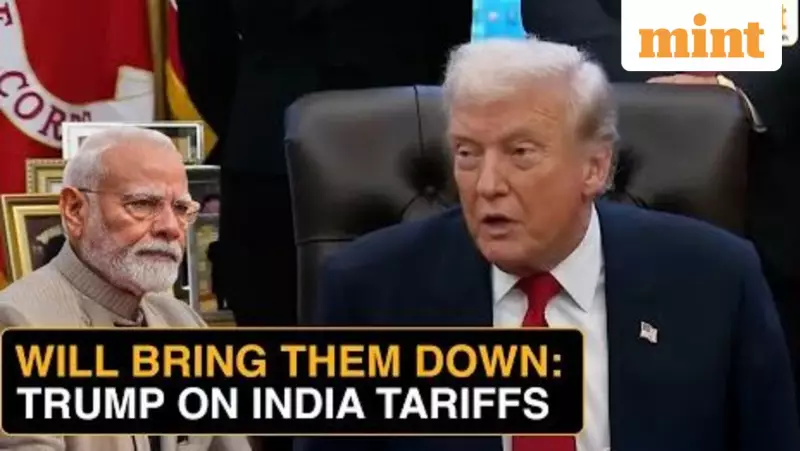
Trump's Tariff Announcement Signals Shift in US-India Trade Relations
In a significant development for bilateral trade relations, United States President Donald Trump indicated on Tuesday that Washington is considering reducing tariffs imposed on Indian goods. The announcement came during discussions about ongoing trade negotiations between the two nations and contained a notable reference to India's energy import policies.
The US President specifically mentioned that India has "stopped" purchasing Russian oil, suggesting this development has influenced Washington's perspective on tariff levels. Trump's comments provide the clearest indication yet of potential relief for Indian exporters who have faced elevated tariffs under recent US trade policies.
Trade Negotiations Take Positive Turn
When questioned about the status of trade discussions with India, President Trump revealed that the United States would be "bringing down" the tariffs that have been a point of contention between the two economic partners. The statement, made on November 11, 2025, represents a potential breakthrough in negotiations that have spanned several months.
Trump directly connected India's high tariffs to its previous oil trade with Russia, indicating that policy adjustments from New Delhi have created conditions favorable for tariff reductions. This linkage underscores how global energy politics continue to influence broader economic relationships between nations.
Implications for Bilateral Economic Partnership
The potential tariff reduction could significantly benefit Indian exporters across multiple sectors, including textiles, engineering goods, and agricultural products. For American consumers, this move might translate to more competitive pricing for Indian-made goods in the US market.
The timing of this announcement suggests progress in behind-the-scenes diplomatic efforts to resolve trade friction between the world's largest and fifth-largest economies. Both nations have been working to strengthen their economic partnership while navigating complex geopolitical considerations, particularly regarding international energy markets and global alliances.
Market analysts will be closely monitoring formal agreements that might follow this verbal commitment, as specific details regarding the extent of tariff reductions and implementation timelines remain to be clarified through official channels.






